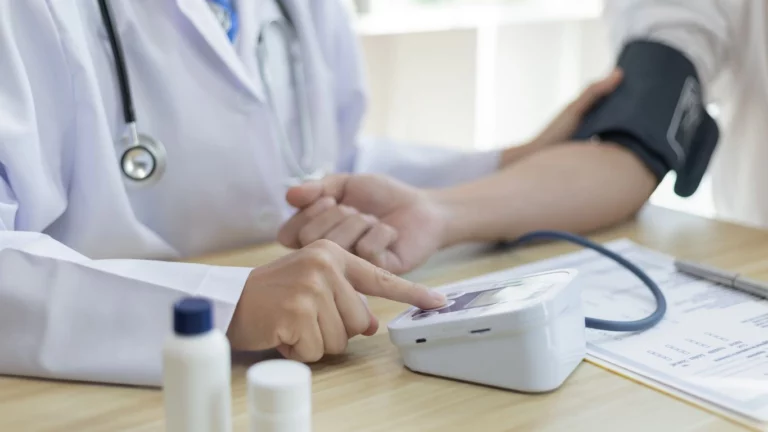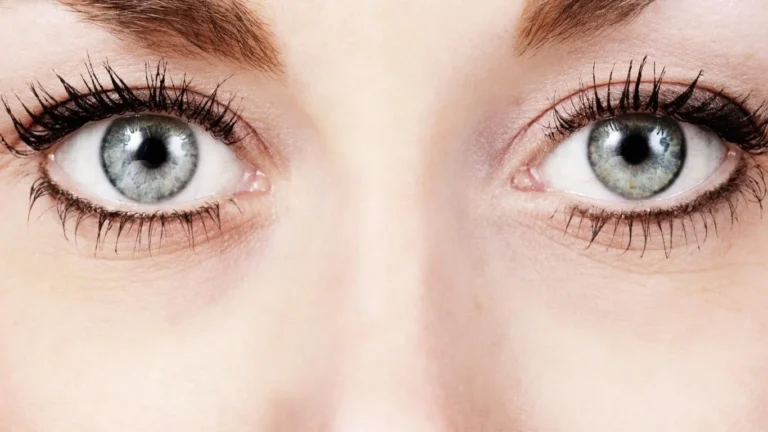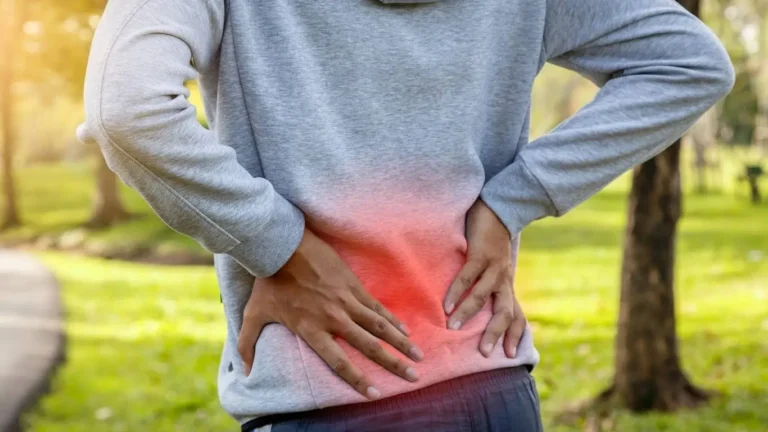Best GERD Friendly Hydration Drinks That Soothe Acid Reflux
If you’ve ever dealt with acid reflux, you know that even something as simple as grabbing a drink can turn into a guessing game. As someone who works closely with patients in a gastroenterology clinic, I’ve seen it time and again — folks trying to figure out what they can sip on without setting off that all-too-familiar burn. That’s why I wanted to chat about something we don’t talk about nearly enough: GERD friendly hydration drinks. Yup, there are actually beverages out there that won’t make you regret every sip. Let’s dive in — no lab coats, no jargon, just real talk and some personal tips from the trenches.
What Is GERD and Why Does It Hate Your Favorite Drinks?

GERD — that’s gastroesophageal reflux disease — is basically chronic acid reflux. It’s what happens when stomach acid hangs out where it shouldn’t, creeping up into your esophagus and causing that burning sensation. Now, you’d think drinks would be safe, right? Nope. Turns out, a bunch of common beverages can relax the lower esophageal sphincter (a.k.a. the gatekeeper that keeps acid where it belongs), or increase acid production. Fun, right?
Back in the clinic, we had patients constantly asking what they could drink without triggering symptoms. And trust me, after hearing enough frustrated sighs, I started keeping a mental list of drinks that played nice with GERD. Over time, I saw which ones made a difference, and which ones were secretly sabotage in a bottle.
Hydration Without the Heartburn: My Go-To GERD Friendly Hydration Drinks

Okay, let’s talk solutions. The good news? You don’t have to stick to plain water (unless you’re into that, which hey — more power to you). There are a handful of drinks that are not only safe but actually soothing for GERD. And no, we’re not just talking about warm milk like it’s 1955. Below are some real-life options I often suggest when patients ask for alternatives that won’t flare up their reflux.
1. Alkaline Water
Honestly, this one’s been a game-changer for a lot of folks. Alkaline water has a higher pH, which can help neutralize stomach acid. Some patients say they feel the difference within a few days of switching. While it’s not a miracle cure, it’s one of the simplest upgrades you can make to your hydration routine.
2. Coconut Water
This one surprised me too. Naturally hydrating and packed with electrolytes, coconut water is gentle on the stomach and less acidic than you might expect. Just double-check the label — no added sugars or citrus flavors!
3. Herbal Teas (But Choose Wisely)
Chamomile and slippery elm are the top contenders here. They’re known for their soothing properties. I always recommend avoiding peppermint or spearmint teas, though — they can relax the esophageal sphincter and cause more harm than good. I’ve had patients come in swearing peppermint tea was helping, only to realize it was making things worse.
4. Aloe Vera Juice (in Small Doses)
A little goes a long way here. Aloe vera juice can calm inflammation in the GI tract. I tell patients to look for purified versions that are specifically made for drinking — and to start with just a few ounces. Think of it like a supplement, not something to gulp down all day.
5. Infused Water
This one’s a personal favorite of mine. Just add some cucumber slices, a sprig of fresh mint (if you’re not sensitive to it), or even a few berries into your water. It keeps things interesting without adding acid. One of my coworkers actually keeps a rotating flavor jug in the staff fridge. It’s low-key genius and surprisingly GERD-friendly.
Why Hydration Matters More Than You Think

Here’s something that doesn’t get talked about enough — staying hydrated is crucial for digestion. When you’re not drinking enough, your stomach contents become more concentrated, and that can make reflux even worse. Plus, certain medications for GERD (like PPIs or H2 blockers) work better when your system is properly hydrated. I used to gently nudge patients who’d show up clutching a coffee and complaining about reflux… We’d swap that latte for an herbal tea or alkaline water, and boom — sometimes the change was immediate.
So next time you’re reaching for a drink, just pause and ask yourself: is this going to help or hurt? A few small changes can really shift the way your body feels — and you don’t have to give up flavor or fun to make them.
What to Avoid: Drinks That Secretly Worsen GERD

So we’ve talked about the heroes — now let’s talk about the troublemakers. I can’t even count how many patients were shocked when we went over their beverage choices. Sometimes it’s not the food, but what you’re drinking that’s messing with your esophagus. Here’s a quick list of drinks that tend to stir up trouble for GERD sufferers — and yes, some of them are heartbreakers.
1. Coffee (Yes, Even Decaf)
This one hurts, I know. I had a patient who said coffee was her morning lifeline — and I totally get it. But the acid content and caffeine both relax the lower esophageal sphincter. Even decaf still contains enough acid to cause problems. If you absolutely can’t let it go, try switching to cold brew. It’s lower in acidity and might be more tolerable in small amounts.
2. Citrus Juices
Orange juice, lemonade, grapefruit juice — basically, if it makes your mouth pucker, it’s probably making your stomach acid do backflips. I used to think “natural” meant “safe,” but some of these juices are just straight-up acid bombs. Especially first thing in the morning on an empty stomach? Nope. Recipe for disaster.
3. Carbonated Drinks
Soda, sparkling water, and even kombucha can introduce extra gas into the stomach, which increases pressure and can push acid upward. I had a patient who proudly told me she gave up soda — but replaced it with flavored sparkling water. Her symptoms didn’t budge until we made the switch to flat, still water.
4. Alcohol (Especially Wine and Beer)
Now, I’m not saying you can’t ever enjoy a glass of wine, but moderation is key. Alcohol, especially red wine and beer, can irritate the stomach lining and lower that important esophageal gate. In the clinic, we’d often see patients whose weekend happy hour tradition was followed by a Monday reflux flare-up. It’s not always obvious until you start tracking it.
5. Energy Drinks
This one’s kind of a no-brainer, but it’s worth mentioning. High caffeine, carbonation, acidity — it’s the trifecta of GERD triggers. If your stomach’s already sensitive, these are like throwing gasoline on a fire. Definitely a “hard pass” if you’re serious about managing symptoms.
Simple DIY GERD Friendly Drink Ideas You Can Try Today

If you’re feeling a little overwhelmed by all the “don’ts,” don’t worry — there are tons of easy, DIY options that let you stay hydrated *and* reflux-free. I’ve even started making a few of these at home and keeping them in the fridge. That way, I’m not tempted to grab something I’ll regret later.
1. Cucumber & Mint Infused Water
Just toss a few slices of cucumber and a sprig of mint into a pitcher of filtered water. Let it sit in the fridge for a couple hours. It’s refreshing, light, and great for digestion. Bonus: it looks super fancy for almost zero effort. Great if you’re hosting or just pretending it’s a spa day.
2. Chamomile-Ginger Iced Tea
Steep a chamomile tea bag with a few slices of fresh ginger. Chill it and serve it over ice. Ginger has natural anti-inflammatory properties, and chamomile is a soothing classic. A few patients have told me it’s their go-to evening wind-down drink now.
3. Coconut Water Smoothie
Blend plain coconut water with a few frozen banana slices and a handful of spinach. Sounds weird, tastes amazing. And it’s incredibly gentle on the gut. This is something I started doing after seeing a dietitian recommend it during a patient consultation. Simple, nutrient-rich, and reflux-safe.
How I Help Patients Track Their GERD Friendly Hydration Choices

One of the best pieces of advice I give in the clinic? Keep a drink diary. Sounds nerdy, but it works. I’ve seen patients connect the dots between that “healthy green juice” and their evening reflux just by jotting down what they drank throughout the day. Even mild triggers can build up over time.
- Track time of day: Sometimes morning coffee is fine, but evening caffeine wrecks your night.
- Note symptoms: Bloating, heartburn, throat irritation — all worth tracking.
- Watch combinations: That lemonade might be okay solo, but not on top of spicy food.
We’re not looking for perfection — just patterns. And when you find what works for you, it becomes so much easier to stick to. I’ve had patients come back weeks later saying they finally feel in control again — and hydration was the missing piece all along.
Daily Habits That Support GERD Friendly Hydration

By now, you’ve probably realized managing GERD isn’t just about avoiding spicy food or skipping soda — it’s a whole lifestyle thing. And hydration plays a bigger role than most folks think. In the clinic, I’d always say, “Let’s build a plan that your gut actually likes.” Because hydration is just one piece of the puzzle — but it’s one that can shift everything if you get it right.
Here are a few habits I often suggest to patients who are working on getting their GERD under control, especially when it comes to what (and how) they drink:
- Drink smaller amounts, more often: Gulping down large glasses all at once can distend your stomach and lead to reflux. Sip throughout the day instead.
- Stay upright after drinking: It sounds simple, but avoiding reclined positions after you hydrate — even after something GERD friendly — can make a real difference.
- Separate drinks and meals: Try not to drink large amounts during meals. Wait about 30 minutes after eating before hydrating again to avoid sloshing food and acid around in your stomach.
- Don’t drink before bed: Late-night fluids can increase the risk of nighttime reflux. I usually recommend cutting off drinks at least an hour before lying down.
These are small changes, but trust me — I’ve seen them add up to big relief for people who were struggling. And sometimes, it’s not about cutting things out completely, but just tweaking the way you approach them.
Smart Swaps: GERD Friendly Drinks That Replace Common Triggers

When someone tells me, “I just can’t give up my [insert trigger drink here],” I don’t try to strong-arm them. Instead, I suggest swaps that feel like less of a sacrifice. The trick is to upgrade your drinks, not just remove them. Below are a few crowd-favorite substitutions I’ve seen really work:
- Instead of orange juice → Try pear juice: Pears are low-acid, gentle on digestion, and still give you that juice vibe.
- Instead of soda → Try flat herbal iced tea: You can make your own with chamomile, ginger, or licorice root, then chill it for a fizzy-free refreshment.
- Instead of an energy drink → Try coconut water + a pinch of sea salt: It gives you electrolytes and hydration without the acid or caffeine overload.
- Instead of wine → Try a mocktail with infused water and a splash of apple cider vinegar (if tolerated): Sounds odd, but in very small amounts, ACV can actually help balance stomach pH for some people. Always test slowly and talk with a provider if unsure.
I had a patient who used to drink cola daily. After switching to ginger-chamomile iced tea, she said her reflux improved within a week — and she didn’t even miss the fizz. These swaps aren’t about deprivation — they’re about giving your body something better.
When to See a GI Specialist (And What to Ask)
If you’ve already made these changes and you’re still struggling with GERD symptoms, it might be time to bring in a specialist. As a medical assistant, I’ve seen firsthand how important early intervention can be. Untreated GERD can lead to more serious conditions like Barrett’s esophagus — and that’s not something to brush off.
Here’s what I tell patients before their first GI consult:
- Bring a food and drink log: The more data you give your provider, the better they can tailor your care.
- Track symptom timing: Morning? Post-meal? Middle of the night? This helps pinpoint causes.
- Ask about medication timing: Sometimes adjusting when or how you take reflux meds can improve results dramatically.
- Don’t be afraid to speak up: If you’ve tried lifestyle changes and nothing’s working, you deserve to be heard. You’re not being dramatic — reflux can seriously affect quality of life.
Getting your hydration game on point is just one layer, but it’s an empowering one. The more you understand your body and your triggers, the more control you have over how you feel.
References
- National Institute of Diabetes and Digestive and Kidney Diseases
- Mayo Clinic
- Cleveland Clinic
- MedlinePlus
Disclaimer
This article is for informational purposes only and is not a substitute for professional medical advice, diagnosis, or treatment. Always consult with a qualified healthcare provider about any medical condition or dietary change. The suggestions shared are based on general recommendations and personal clinical experience as a medical assistant in a gastroenterology setting.

Camellia Wulansari is a dedicated Medical Assistant at a local clinic and a passionate health writer at Healthusias.com. With years of hands-on experience in patient care and a deep interest in preventive medicine, she bridges the gap between clinical knowledge and accessible health information. Camellia specializes in writing about digestive health, chronic conditions like GERD and hypertension, respiratory issues, and autoimmune diseases, aiming to empower readers with practical, easy-to-understand insights. When she’s not assisting patients or writing, you’ll find her enjoying quiet mornings with coffee and a medical journal in hand—or jamming to her favorite metal band, Lamb of God.







